Transforming Cervical Screening in New Zealand
The Challenge
The National Cervical Screening Programme (NCSP) is responsible for minimising the incidence of cervical cancer in New Zealand. Changes in technology meant the NCSP saw the opportunity to markedly increase screening rates through the introduction of HPV Primary Screening, so it embarked on a journey to revolutionise cervical screening in New Zealand.
The primary test for cervical screening was changed from cytology to human papillomavirus (HPV) testing in September 2023, offering the option of self-testing. This pivotal change aimed to introduce a less invasive screening method utilising a cotton swab, significantly enhancing comfort and accessibility, especially for groups like Māori, Pasifika, and transgender individuals who often face significant barriers to cervical screening
A crucial aspect of this transformation was ensuring that relevant healthcare professionals had comprehensive training on the new screening guidelines. The target audience needed comprehensive training on the new screening process and its benefits. This training had to ensure that the learner could confidently navigate the new guidelines, advise participants accurately, and support them through their screening journey. Additionally, the training needed to emphasise cultural safety and patient consent, to address historical mistrust.
The need for effective education and training across the healthcare sector were crucial to ensuring the safety and success of the new program, and was imperative to achieve the programme’s overarching goal of eliminating cervical cancer in New Zealand by 2030.
“The course was full of good information by way of visual, verbal and written. The flow diagrams were a good way to check what knowledge I had gained along the way and so were the tests. I really enjoyed it and feel way more confident with this topic especially with pregnant women who are overdue their test or never had one.”
Our partnership
Synapsys collaborated closely with Health NZ/Te Whatu Ora to develop a robust e-learning program comprising four modules. This partnership focused on delivering clear, technically accurate, and culturally sensitive training. Our process included extensive consultations with Māori advisors to ensure the content respected and prioritised the voices and needs of Māori communities.
The e-learning modules covered:
- Introduction to Cervical Screening: An overview of the new screening model, its effectiveness, and the scientific basis for the change.
- Clinical Pathways: Detailed guidance on interpreting the new clinical guidelines, supported by interactive diagrams and practice scenarios.
- History and Context: Education on the historical context of cervical screening in New Zealand, emphasising the importance of equity and informed consent.
- Practical Conversations: Real-life scenarios and dialogues to help healthcare providers navigate sensitive conversations and support patients in overcoming barriers to screening.
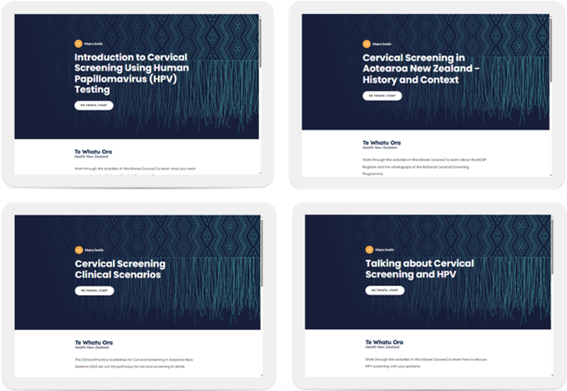
Our team took an innovative approach by incorporating animated videos and real patient stories to make the training engaging and relatable. In our illustration work for this module, we deliberately included a diverse range of body shapes, types, ages, and gender presentations. Additionally, we integrated assessments to ensure learners attained the required competencies. We thoroughly tested all modules, including with nurses who spoke English as a second language, to ensure they effectively support learners in achieving the promised outcomes.
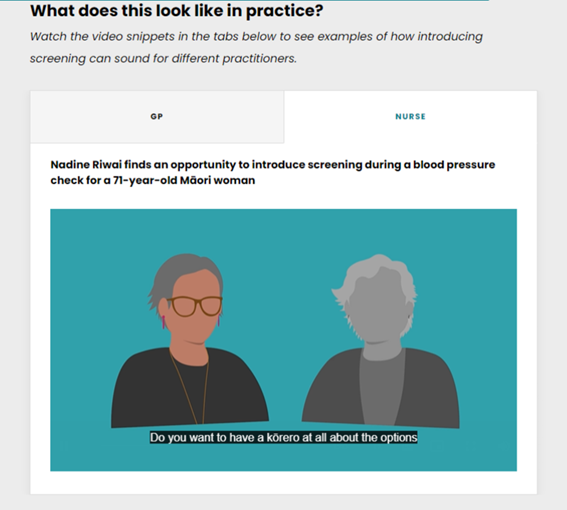 |
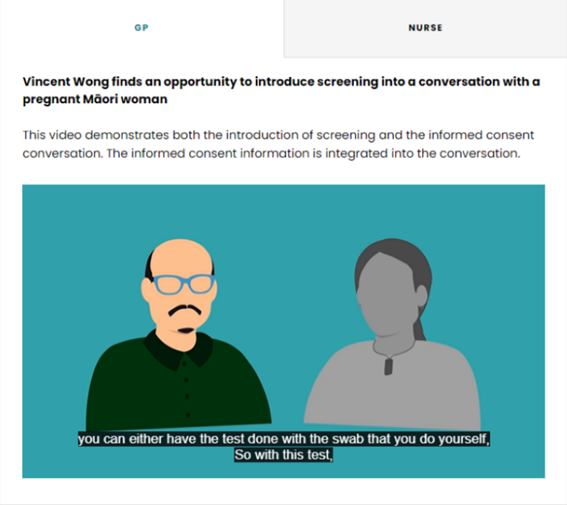 |
“What an excellent resource, it was great to follow with lots of great links which I have added to my favourites for quick access. I learnt a lot and feel as a Midwife this is a great opportunity for women to be screened in a good environment.”
The impact
The impact of this training program has been significant. Feedback from GPs and nurses indicates a high level of engagement and confidence in the new screening process. The inclusion of real voices and culturally sensitive content has been particularly praised, helping healthcare providers better understand and support their patients.
The success of this program demonstrates the transformative potential of well-designed e-learning initiatives in reshaping healthcare practices, ensuring equitable access to important medical screenings for all individuals.
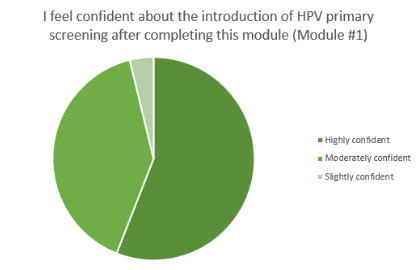 |
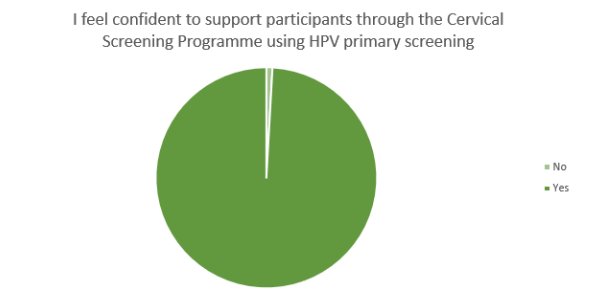 |
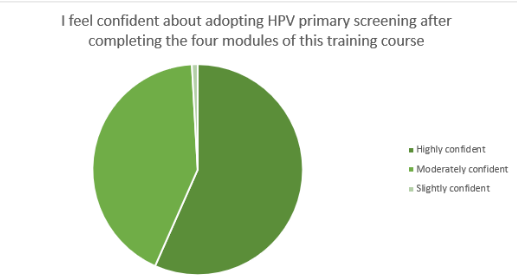 |
“This has been a valuable module. Listening to the nurses telling how they approached and encouraged the women has given me more options. Thank you”
